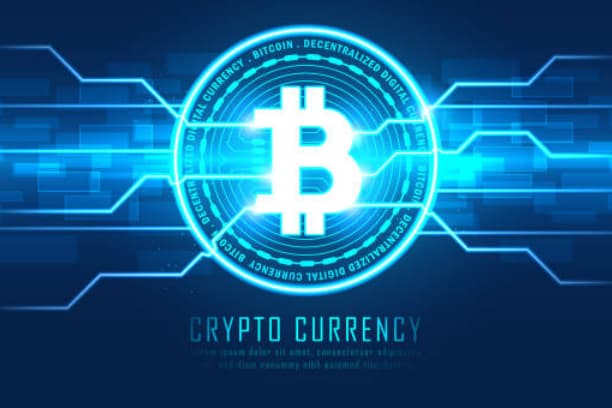Are blockchain games a scam or an innovation? With the rise of cryptocurrencies and blockchain technology, more and more game developers are starting to innovate blockchain gaming and introduce virtual goods and digital assets into their games. Are these games really a revolution in innovation, or are there hidden scams behind them? In this article, we will analyze the legality, technical innovation, investment risk and market value to help readers have a clearer understanding of the present and future of blockchain gaming.

Basic Concepts of Blockchain Games
Blockchain gaming is, simply put, a new type of gaming model that applies blockchain technology to the gaming industry. Unlike traditional games, blockchain games utilize blockchain technology to manage in-game digital assets that players can own, trade, and even earn real value from within the game. These assets usually exist in the form of cryptocurrencies, NFTs (non-identical tokens), etc., and most blockchain games run on a decentralized structure. The core feature of blockchain games is the ability for players to own in-game items and have the right to resell, trade, or take them to other platforms, making the game more than just entertainment and potentially an investment vehicle.
Analysis of the legality of blockchain games
The legality of blockchain gaming is a multi-dimensional issue. Blockchain itself as a technology does not have any legal implications; it is how the technology is used that matters. Many blockchain games involve the trading of virtual goods, the value of which may fluctuate according to market demand, and certain countries and regions have clear regulations on the legality of cryptocurrencies and NFTs. In Taiwan, the legality of blockchain games is still in the wait-and-see stage, and there is no clear legal framework to regulate such games. Therefore, when participating in a blockchain game, players need to know whether the game complies with local laws and regulations, especially if it involves money transactions and NFT purchases.
Regulatory Issues of Blockchain Games
With the popularity of blockchain games, regulators are beginning to step up their scrutiny of these games. For example, some countries have enacted legislation to regulate NFT trading platforms, requiring platforms to provide transparent transaction records and appropriate risk warnings. Regulators in Taiwan have not yet issued specific regulations, which brings uncertainty to the market and increases investment risks.
Innovation and Challenges in Blockchain Gaming
The biggest innovation of blockchain games is the concept of "player-owned game assets". In traditional games, the player's game items and characters belong to the game company, but in blockchain games, the player can actually own and control these digital assets. This not only changes the gameplay, but also creates a whole new economic model. For example, some blockchain games allow players to earn cryptocurrency and convert it to real money, making it possible to "play games for money".
This also brings some challenges. The blockchain technology itself is still in the development stage, and game developers need to overcome technical difficulties such as high transaction fees and network congestion. As many blockchain games are still at an early stage, the lack of mature game design and player base in the market puts the sustainability and attractiveness of blockchain games into question.

Sustainability Issues
Many blockchain games currently rely on new player funding to stay afloat, which is different from how traditional games are run. This mode of operation may lead to sustainability issues, especially when the number of new players decreases, the game's economic system may collapse, resulting in a loss of player funds. Therefore, the long-term sustainability of blockchain games still needs more market verification.
Market Value and Investment Risks of Blockchain Games
The market value of blockchain games has seen explosive growth in recent years. According to market research firm DappRadar, the total transaction volume of the blockchain gaming market exceeded $5 billion in 2023, demonstrating the potential of blockchain gaming as an emerging market. Many game developers and investors have entered this field, especially in the related fields of NFT, cryptocurrency and virtual land, which have become a hot spot for investment in the eyes of many people.
Such a market is also fraught with risk. The price volatility of blockchain games is very high, especially with the uncertainty of the cryptocurrency market, which makes investors' returns uncertain. Some blockchain gaming projects may not have a long-term sustainable business model, which also puts some investors' capital at risk.
Investors need to be cautious
Investors should be wary of blockchain gaming projects, especially when engaging in in-game asset trading. Many blockchain games carry a high investment risk, and some of the projects suffer from a lack of transparency, and may even be so-called "MLM games", where the only value of the game comes from constantly attracting new players, a market environment that could easily lead to a break in the capital chain. Therefore, prudent research and risk management are crucial when investing in blockchain games.
The Future of Blockchain Gaming
The future of blockchain gaming is still full of variables, but in the long run, the impact of blockchain technology on the gaming industry will be revolutionary. With the advancement of technology, future blockchain games may be able to solve some of the current problems, such as high transaction fees, network congestion, etc., and further improve the playability and immersion of players.
More and more major gaming companies are also becoming interested in blockchain gaming, with companies such as Sony and Microsoft already exploring the use of blockchain technology in gaming. The addition of these companies may bring blockchain games into the mainstream market and bring more innovations and opportunities.
Convergence of blockchain games with traditional games
In the future, blockchain games are likely to integrate with traditional games to form new business models. For example, some games may combine blockchain technology with existing game worlds to allow players to have independent digital assets and trade them in the game, a model that will add depth and value to the game.
Conclusion
Overall, blockchain gaming is both an innovation and a risk. It provides players with a new gaming experience and a way to make money, but there are also many uncertainties. As players and investors, they should remain vigilant and do a good job of risk management when participating in such games. The application of blockchain technology in the gaming field is still in the early stage of development, with huge potential for future development, but it will take time to see whether it can achieve true sustainability and stability.














